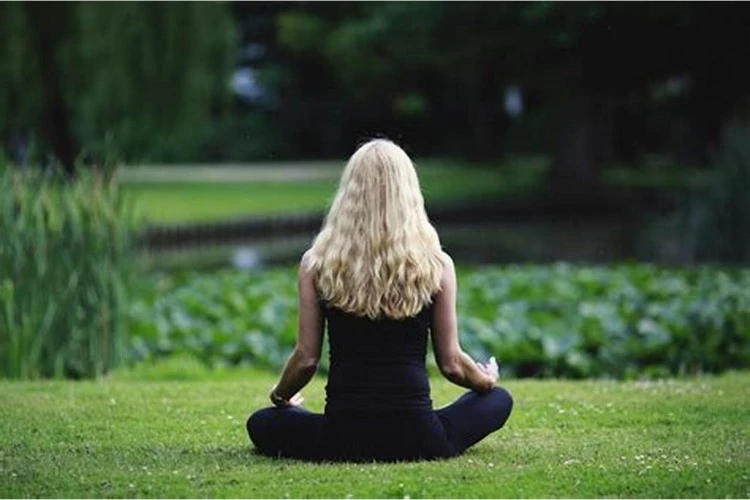Unless we change our mind, we cannot change the world
Muhammad Yunus
We live in a world where ever-increasing productivity is encouraged, and multitasking is a way of life. In a world that seems to be spinning faster every day, it’s easy to get caught up in the chaos and lose sight of our priorities. As we strive for progress and development, it often comes at the cost of our well-being and that of our planet. The days fly by unnoticed, and we seldom take time to enjoy the here and now. We accumulate stress, dissatisfaction, and anxiety. More often than not, we compensate for this with impulsive behavior and different ways of obtaining temporary satisfaction, including excessive consumption and other tools that make our lives unsustainable.
But what if there was a way to find the balance between growth and sustainability, not by sacrificing one for the other, but by intertwining them in a harmonious dance? What should we do for it?
As many studies have shown, human values and state of mind play a significant role in shaping individual and collective behaviors. Mental state and values guide our decisions and actions. They influence our relationships with other people and the environment. That means that sustainable development is not only an economic challenge but also a cultural challenge. This assumes the importance of developing emotional intelligence, which means the ability to identify, use, understand, and manage emotions effectively and positively, and encouraging values such as environmental leadership, social justice, intergenerational equity, compassion, cooperation, and respect for diversity. By promoting these values and attitudes, we inspire people to make sustainable choices in their everyday lives, consumption patterns, and political decision-making. As Nobel Peace Prize winner Prof. Muhammad Yunus noted: “Unless we change our minds, we cannot change the world”. This emphasizes the need for a new holistic approach that considers the interaction between internal and external factors for development to advance sustainable well-being for people and the environment.
There are several ways to develop emotional intelligence and these attitudes and behavior patterns. One of them is the practice of mindful meditation. Practicing this meditation, we can create a world where ancient wisdom meets modern innovation to create a future that is not just successful, but also mindful, compassionate, and sustainable.
Path to inner serenity: Unveiling different types of meditative journeys
People have been practicing mindful meditation for thousands of years. It was promoted in the East by religious and spiritual traditions, while in the West its popularity can be traced to particular people and secular institutions. As for the roots of mindfulness and mindful meditation, they have been intertwined with Hinduism and especially Buddhism for many centuries. Today, in the Western world, we primarily base mindfulness practices on the Buddhist form of meditation called vipassana. One of the most important points of Buddhism is enlightenment. The meaning of the word mindfulness is similar to the Buddhist concept of Sati. The Buddhist concept of Sati, “moment to moment awareness of present events” is actually the first step towards enlightenment.
One of the people who began to spread mindfulness meditation practices in a non-religious way in the West was Jon Kabat-Zinn. He founded the Mindfulness-Based Stress Reduction Clinic (MBSR) at the University of Massachusetts Medical School and created a stress reduction training program. Since 1979, over 24,000 people have completed the 8-week MBSR program. Some of these people have gone on to become teachers and instructors, passing along the practice. The creation of MBSR led to the development of Mindfulness-Based Cognitive Therapy (MBCT) by Zindel Segal, Mark Williams, and John Teasdale. Mindfulness in clinical psychology also grew in popularity with the help of the Insight Meditation Society (IMS), founded by Jack Kornfield, Sharon Salzberg, and Joseph Goldstein in 1975. The trio also founded the Insight Meditation Center situated in Barre, Massachusetts.
Mindful meditation is a popular topic nowadays. It is much talked about and often used in different spheres of our lives. According to statistical data, approximately 200-500 million people engage in meditation worldwide. The global meditation market is expected to be worth USD 9 billion by 2027, and the mindfulness meditation apps market is predicted to reach USD 2.1 billion from 2020 to 2025.

Despite the popularity of mindful meditation, not everyone knows what it is and what it includes. Mindful meditation is the practice of purposefully focusing attention on the present moment and shifting the mind away from usual preoccupations. Mindful meditation involves observing thoughts and feelings without judgment and cultivating a sense of compassion and interconnectedness.
The most common forms of mindful meditation are breathing meditation and body scanning, which are usually practiced in a comfortable position. While slowly and deeply breathing, people bring their focus solely to the breath, paying attention to each inhale and exhale. Body scanning involves a non-evaluative focus on different parts of the body. These types of meditation require special conditions and positions. However, you can practice mindful meditation while doing your daily chores.
For example, you can practice mindful walking meditation. During this type of meditation, people engage in a slow and deliberate walk, paying attention to each step, the sensations in their feet, and the movement of their bodies. They establish connections with the environment around them by noticing the sounds, smells, and sights, etc.
Have you ever heard of mindful eating meditation? While practicing it, people take time to eat a meal without distractions. They focus on each bite, the flavors, textures, and smells.
You can also practice mindful gardening meditation by spending time cultivating a garden, planting seeds, pruning plants, or simply being present in nature. If you want to do this, you should notice the textures, smells, and sensations of gardening, etc.
By practicing these types of meditation, people can also concentrate on different aspects of sustainable development. For example, while practicing eating meditation, individuals can consider the impact of food choices on sustainable development, such as opting for locally sourced, organic, and plant-based options to reduce carbon footprint and support sustainable agriculture. Or practicing gardening meditation, people can reflect on how sustainable development can be encompassed through gardening practices, such as composting, conserving water, and growing organic produce to reduce waste and promote a healthier ecosystem.
From chaos to clarity: Mindful meditation yields remarkable results
The popularity of mindful meditation is primarily related to its results. What specific effects can mindful meditation produce?

Numerous studies have been conducted over the years to examine the effects of meditation on people health. These studies provide compelling evidence that incorporating a regular meditation practice into ones’ routine can lead to various improvements in his (her) well-being. Here are some noteworthy findings:
- Reduced blood pressure and improved cardiovascular health. High blood pressure is a common health concern that increases the risk of heart disease and stroke. Practicing mindful meditation, such as focusing on the breath and sensations in the body, can significantly lower both systolic and diastolic blood pressure levels. Meditation lowers blood pressure for 80% of the people who practice it. Research has demonstrated that meditation can also positively impact cardiovascular health by reducing stress, lowering cholesterol levels, improving blood circulation, and decreasing the risk of heart attacks, strokes, and other cardiovascular events.
- Reduced inflammation and strengthened immune system. Various studies have showcased that meditation can result in decreased inflammatory markers in the body. By lowering chronic inflammation, meditation may contribute to better overall health outcomes. Scholars have also found that individuals who engage in meditation experience enhanced activity in natural killer cells, lymphocytes, and other immune system components. This suggests that meditation helps boost the immune response, ultimately improving overall health and aiding in disease prevention.
- Alleviated chronic pain. Chronic pain, such as lower back pain or arthritis, can be incredibly debilitating and affects millions of individuals worldwide. However, research indicates that meditation techniques, including mindfulness-based stress reduction (MBSR), can reduce pain perception (for example back pain by 30%) and improve the physical and emotional well-being of individuals suffering from such conditions.
- Reduced stress, anxiety and depression and enhanced emotional well-being. A study published in the Journal of Alternative and Complementary Medicine found that individuals who practiced meditation for as little as ten minutes a day experienced diminished stress levels (for instance post-traumatic stress disorder by 70%) and anxiety symptoms. Mindfulness meditation reduces. Meditation cultivates mindfulness and helps individuals become aware of and detach from negative thought patterns, leading to depression. Research published in the Journal of Counseling and Development showed that meditation can lead to heightened emotional well-being. This is attributed to the increased self-awareness and self-acceptance developed through meditation, which helps individuals better regulate their emotions.
- Enhanced sleep quality. Lack of quality sleep has become a prevalent issue in modern society. Insomnia and poor sleep quality are common issues that significantly impact mental health. Several studies have demonstrated that engaging in meditation before sleep can help individuals fall asleep faster, experience deeper sleep cycles, and wake up feeling more refreshed. In general, the practice of mindful meditation leads to a 50% reduction in insomnia.
- Enhanced brain function, improved focus and attention. Meditation has been found to enhance cognitive skills, particularly attention and focus. A study conducted by the University of California, Los Angeles (UCLA), revealed that individuals who engaged in regular meditation practice showed significant improvements in their ability to sustain attention, multi-task, and process information. 50% of people who practice meditation find that it aids in their memory and focus. This improvement is thought to arise from the increased gray matter density observed in specific brain areas associated with attention regulation.
- Better management of addictive behaviors. A comprehensive meta-analysis of 60 studies published in the journal Substance Abuse Treatment, Prevention, and Policy found that mindful meditation interventions effectively reduced substance abuse and addictive behaviors. Meditation helps individuals develop skills to better cope with cravings, impulsivity, and negative emotions that often contribute to addiction.
Thus, mindful meditation has been proven to be a valuable practice for achieving overall well-being. By taking advantage of the scientifically backed benefits, individuals can augment their health and enjoy a higher quality of life.
Sustainable souls: The surprising influence of mindful meditation on sustainable behavior
At the same time mindful meditation can be also supportive for sustainable development by changing our values and behavior patterns. Here are some ways in which meditation and mindfulness can support sustainable development:
- Mindful meditation can enhance empathy and compassion. This can lead to more and responsible and caring behavior towards other people, animals and the environment. By realizing the interconnectedness of all beings and the environment which had been stressed during meditation practice people can get a sense of responsibility toward sustainable development and can become more responsible making choices and actions.
- Human-beings practicing mindful meditation cultivate present-moment awareness, inner peace and reduce impulsive reactions. Therefore, they can change decision-making and consumption patterns. For example, as studies shows unhealthy food cravings can be curbed by 40% by meditating for at least 10 minutes a day. People can make choices guided by sustainable values and long-term well-being rather than short-term benefits.
- Mindful meditation can encourage sustainable lifestyle choice and consumption patterns. People can become more conscious about resource use, waste reduction, and adopt eco-friendly practices.
- Mindful meditation can promote flexibility and adaptability to address complex challenges. It cultivates open-mindedness and acceptance of uncertainty, essential for finding innovative sustainable solutions.
- Mindful meditation can help cooperation and collective action. By cultivating inner peace, self-awareness, emotional resilience and promoting active listening, empathy, and non-judgment, mindfulness can help bridge the divide and create spaces for dialogue and collaboration among different actors.

The mindful revolution: How mindfulness and meditation programs are transforming different spheres of our life
There are a lot of examples of mindful meditation programs in different areas of life. For instance, they are widely used in big corporations.
Recently, companies in the West have turned to mindfulness practices to promote employee well-being and productivity. One of the pioneers of these corporate initiatives is Jon Kabat-Zinn, who designed a program called Mindfulness-Based Stress Reduction which includes an introduction to meditation practices. Another one is Chade-Meng Tan who designed a course Search Inside Yourself with meditation practices and emotional intelligence training – an approach he pioneered at Google. While applying the course in Google he demonstrated how mindfulness can enhance productivity and emotional well-being of leaders and ordinary employees.
Nowadays, mindfulness practices are used by many companies like Aetna, Beiersdorf, Bosch, General Mills, Goldman Sachs, Intel, Royal Dutch Shell, SAP, Target etc. Attending a meditation class is a popular way to begin the workday at many Silicon Valley companies, including Apple, Facebook, LinkedIn, and Twitter.
Some of them (Google, LinkedIn, and Twitter) offer guided meditations in the midst of working hours. Google has also created silent lunches and silent rooms, where employees can go to reset their mind during the working day.
General Mills motivate the employees to meditate and doing yoga. Mindfulness practices is a part of the company’s mission to create a healthy working environment culture.
Another interesting example of using mindfulness practices is Nike which has a remarkable history of encouraging a healthy work environment. It provides their employees weekly free meditation class and other practices.
Many of these organizations attempt to cultivate a new form of leadership. Among the top executives who meditate and encourage their employees to do it, for example, are Twitter CEO Jack Dorsey, Salesforce CEO Marc Benioff, and Google cofounder Sergey Brin.
These programs not only contribute to the concentration and productivity of employees, but also form healthy values and attitudes, as well as improve their quality of life in general. For example, Aetna reported that their mindfulness training program resulted in 62 extra minutes of productivity per week (gaining USD 3,000 in value per employee) and a 7% reduction in health care costs (saving USD 2,000 per employee). Aetna estimated this represents an 11-to-1 return on investment. Participants of BlackRock’s internal Mindfulness Training Program believe it positively adds to the culture (91%), experience less stress or are better able to manage stress (66%), are better able manage themselves at work (63%), experience increased focused, mental resilience, and better decision-making (60%), better manage relationships with peers at work (52%), experience increased innovation and creativity (46%).

There are many examples of application of mindful meditation in other spheres of life.
For example, mindfulness practices are applied in the Hospital for Special Surgery in New York. The meditation practice and corporate mindfulness training programs for staff help manage stress and anxiety, improve focus and concentration, and boost overall productivity of employees who are responsible for their patients’ lives. The hospital allows employees to participate in the expert-led mindfulness programs for patients. The pain and stress management meditation practices are used there as a non-pharmaceutical alternative to managing discomfort and decreasing pain as well as a tool for improving the quality of life of employees.
Mindfulness practices including meditation are used in different authorities, for instance in the UK’s Parliament and the US House of Representatives. For example, Chris Ruane who has been a member of the British parliament since 1997, from 2013 onwards has delivered mindfulness training to over 450 Parliament members and their employees. In 2014 he founded The Mindfulness All Party Parliamentary Group (MAPPG) which is committed to advancing policy on mindfulness in various domains such as healthcare, education, law enforcement, and employment. At present, he collaborates with mindfulness supporters in more than 40 countries who aspire to introduce mindfulness in their legislative bodies.
Mindfulness and meditation practices are used in different projects dedicated to education (like for example Smiling Mind program in Australia) and sustainability. For example, one successful example of integrating meditation practices into sustainable development efforts is the Tamera Peace Research Village in Portugal. Tamera has yielded positive outcomes by creating a resilient community and implementing eco-villages that focus on sustainability. They have developed large-scale water retention landscapes, known as “Healing Biotopes”, which help restore degraded ecosystems and promote biodiversity. These initiatives have resulted in the restoration of water cycles, increased soil fertility, and the creation of vibrant habitats for various species. Tamera incorporates meditation as an essential element of their regenerative ecology and community-building projects. Their meditation practices aim to develop consciousness and empathy, enabling individuals to connect deeply with nature and contribute to sustainable living.
The variety of these examples demonstrates the enormous possibilities of mindful meditation and the availability of extensive experience that can be used to improve the quality of life and achieve sustainable development goals. While mindful meditation is not a panacea for the complex issues of sustainable development, it offers a promising avenue for personal and societal transformation. By incorporating mindfulness into our daily lives and decision-making processes, we can begin to shift away from the unsustainable patterns of consumption and growth that have brought us to the brink of ecological and social collapse. It is through the quiet introspection and gentle compassion of mindful meditation that we might just find the profound wisdom and collective willpower needed to create a more sustainable and equitable world.


